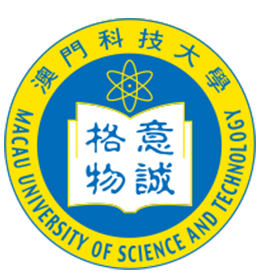MUST held the Roundtable Dialogue in Macao
MUST held the Roundtable Dialogue in Macao
The Institute of Development Economics at Macau University of Science and Technology (MUST) hosted the Roundtable Dialogue in Macao on October 15, 2025, at 3:45 PM in O702, in collaboration with the School of Business at MUST. The keynote speech was delivered by Professor Zhao Hongjun, Associate Dean of the School of Business at Shanghai Normal University and Director of the Belt and Road Regional Development and Cooperation Committee, as well as Professor David Ong, Professor of Economics at the Joint Institute of Jinan University and the University of Birmingham, to deliver keynote speeches and engage in in-depth discussions with local economists. The forum aimed to foster high-level academic dialogue and information exchange, further deepening understanding of China’s economic development.
Leaders from MUST and distinguished guests attended the event, including Chair Professor Francis T. Lui, Director of the Institute of Development Economics at MUST; Professor Liu Chengkun, Director of the Institute for Sustainable Development at MUST and Professor Zhang Jinghua, Assistant Dean School of Business at MUST, Professor Song Yu, Assistant Director of the Institute of Development Economics at MUST,among others. Nearly 200 participants attended the lecture, including local experts, scholars in finance, economics, and policy research fields, as well as teachers and students from MUST, which made the event lively and engaging.
In his keynote address titled “Chinese Economic Miracle and Its Future: A Long-Term Development Perspective,” Professor Zhao reviewed China’s economic achievements since the reform and opening-up era. He highlighted China’s emergence as a leading destination for foreign direct investment and a global trade powerhouse, attributing its sustained GDP growth to a unique governance model that combines political centralization with economic marketization. He emphasized the role of gradual reforms, fiscal decentralization, and the co-development of state-owned and private enterprises. Using empirical data, Professor Zhao illustrated China’s growing global share in manufacturing, trade, and investment, sparking in-depth discussions on structural competitiveness and global economic governance.
Professor David Ong presented his research titled “Sorting by Height: Preferences, Matching, and Income Inequality,” which explores how visible non-economic traits—specifically height—affect marital matching and household income inequality. Drawing on randomized online field experiments and data from the China Family Panel Studies (CFPS), he demonstrated that couples in the top height decile earn approximately 70% more than those in the lowest decile, with the effect primarily driven by the husband’s height. His findings suggest that sorting based on non-economic characteristics can exacerbate income inequality. Professor Ong also proposed that this analytical framework could be extended to study other visible traits such as education and physical appearance.
The forum’s signature roundtable discussion, moderated by Assistant Professor Zhang Fan of the Institute for Development Economics, centered on the theme “Linking Micro-Level Preferences with Macro-Level Economic Development.” Professors Zhao and Ong engaged in a dynamic exchange of perspectives, with Professor Zhao commending the innovative use of height as a lens to examine inequality, and Professor Ong praising Professor Zhao’s systematic analysis of China’s macroeconomic trajectory and the interplay between institutions and growth. Their dialogue highlighted the complementarity of macro and microeconomic approaches.
Chair Professor Francis T. Lui further enriched the discussion by integrating insights from his own research in development economics and China’s economic practice. He echoed Professor Zhao’s emphasis on institutional drivers of growth and introduced new reflections on China’s industrial upgrading and innovation amid evolving global dynamics. He also engaged Professor Ong in a dialogue on the intersection of cultural norms, social expectations, and market efficiency in addressing discrimination, contextualizing the discussion within China’s demographic and industrial landscape.
Throughout the forum, the three scholars constructed a multi-dimensional analytical framework bridging behavioral, development, and labor economics. Their discussions combined academic rigor with real-world relevance, offering valuable insights into China’s economic transformation.
During the Q&A session, participants raised thought-provoking questions on topics such as the impact of marital preferences on regional human capital distribution and policy strategies to mitigate implicit bias and enhance resource allocation for sustainable development. The speakers responded with theoretical insights and practical examples, broadening the scope and depth of the conversation.
The forum concluded with enthusiastic applause, marking a successful exchange of ideas across disciplines. It provided a high-caliber platform for integrating macroeconomic and microeconomic perspectives, contributing to inclusive economic development and informing future research and policymaking.
Hongjun Zhao is a Professor of Development Economics, Associate Dean, School of Finance and Business, Shanghai Normal University, Director, Shanghai Committee for Development and Cooperation along the B & R Countries and Regions. He received his PhD in Economics from Fudan University in 2005. He conducted a two years Post-doctoral Study at Shanghai University of Finance and Economics during 2007-2009. He has been a visiting Scholar at the University of Chicago during 2007-2008, University of Ljubljana, Slovenia during 2012-2013, and Incheon National University, Korea in 2015, and Vienna Complexity Society in 2023. His research focuses on Chinese governance, institutional transition, BRI and regional development, Chinese long-term economic development.
His work has appeared in international journals like Journal of Asian Economics, Spatial Economic Analysis, Review of Development Economics, International Review of Finance and Economics, and many other Chinese leading journals. He has published 10 books in the press like Edward Elgar Publishing, Shanghai People's Press, Peking University Press, Northeast University of Finance and Economics, etc. He also conducted many consulting projects to various government institutions in Yangzi delta regions. His current study focuses on Confucian Culture, Chinese governance and Chinese modernization.
David Ong is a Professor of Economics at the Jinan University–University of Birmingham Joint Institute in Guangzhou. He received his Ph.D. in Economics from the University of California, Davis. His research lies in applied microeconomics, with a focus on experimental and behavioral economics. He has published on gender differences in competitiveness, marriage search and matching, the labor market beauty premium, co-author matching, price dispersion, and choice overload. His work has appeared in leading field journals including the Journal of Development Economics, European Economic Review, Journal of Economic Behavior & Organization, and Economics Letters. Current projects examine how competitiveness affects household income dynamics and how preferences over height and income shape marriage markets.
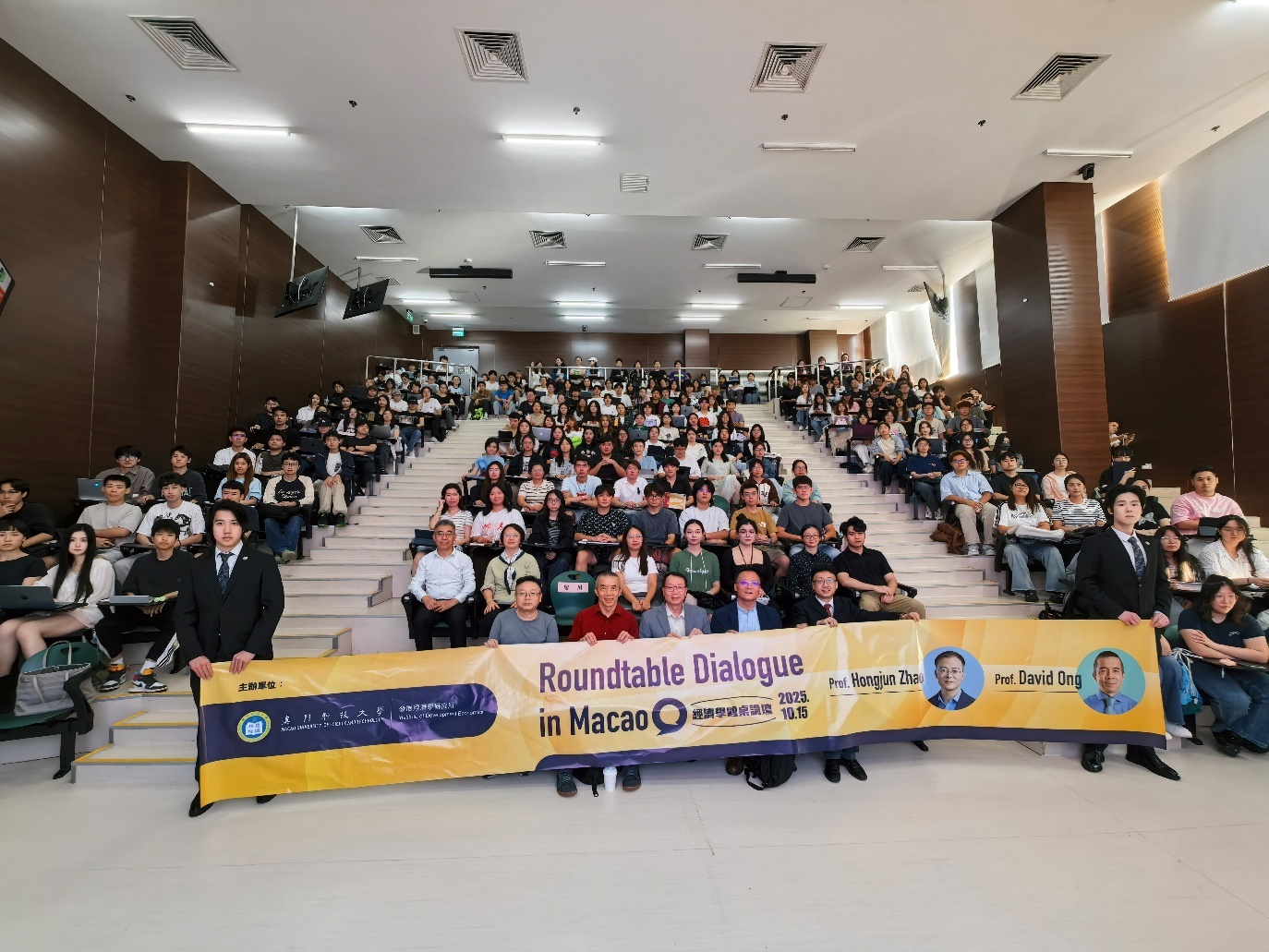
A group photo during the lecture
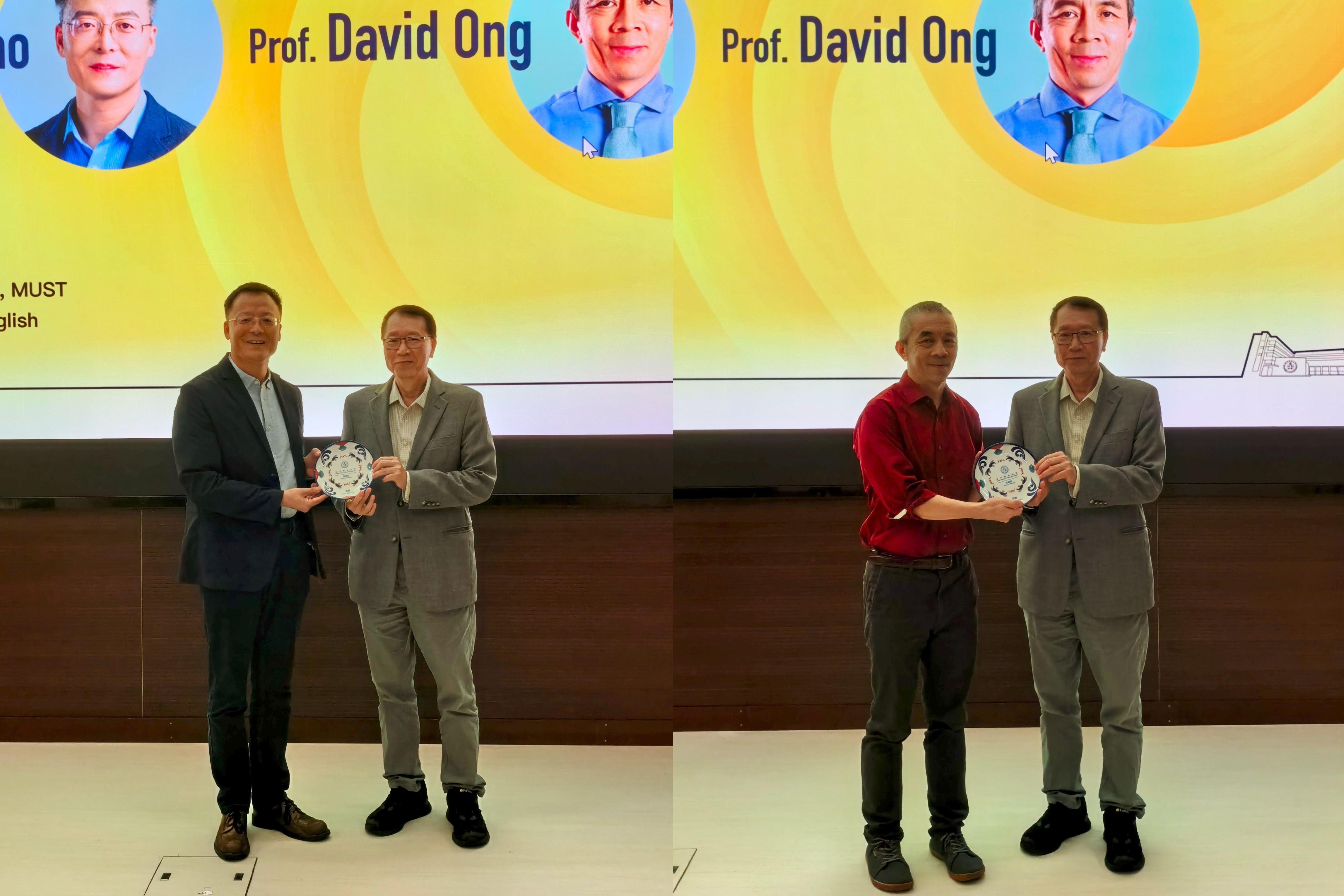
Chair Professor Francis T. Lui, Director of the Institute of Development Economics at MUST (right) presented a souvenir to Professor Hongjun Zhao(Left) and Professor David Ong (Left)
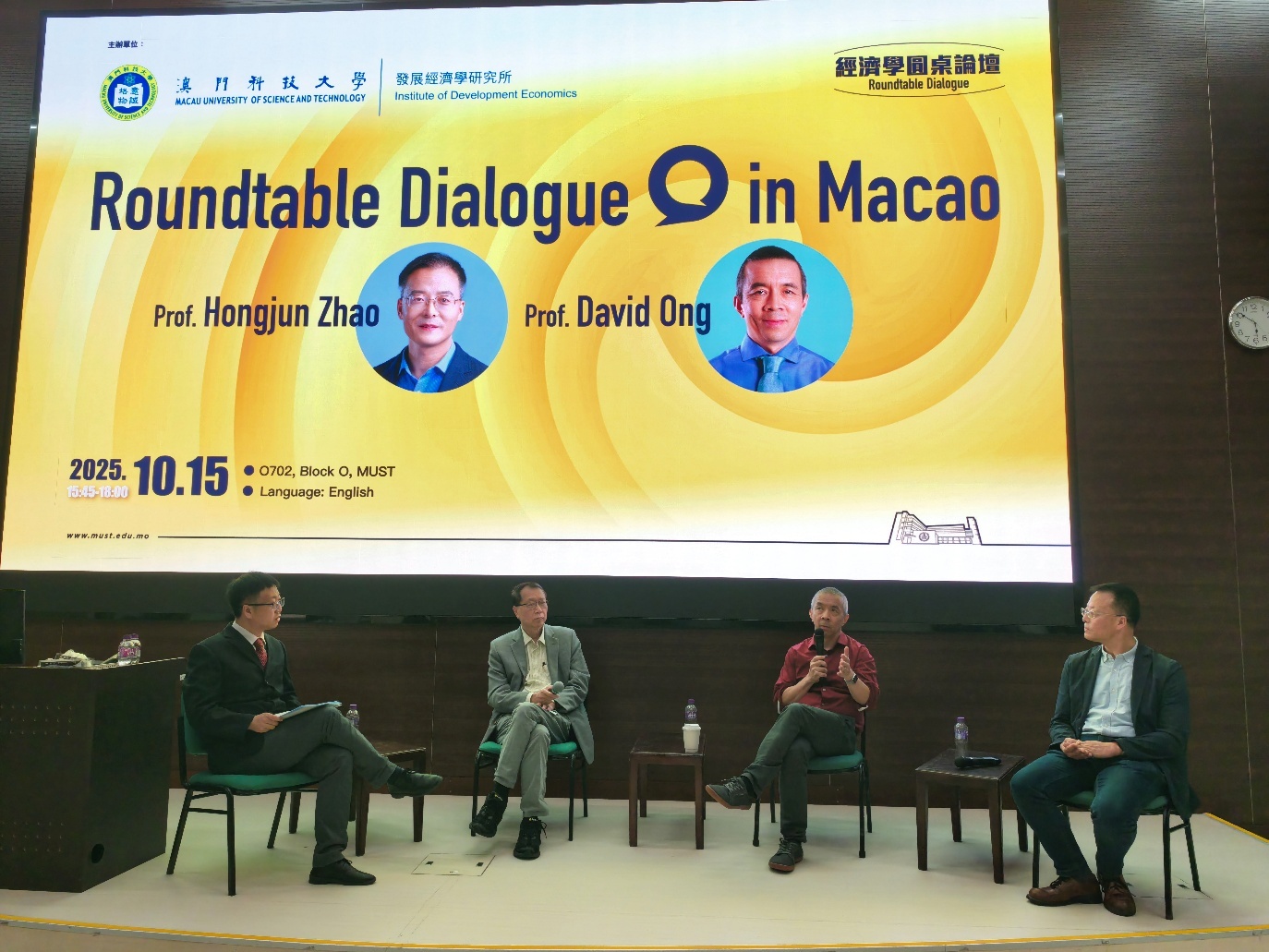
During the roundtable discussion
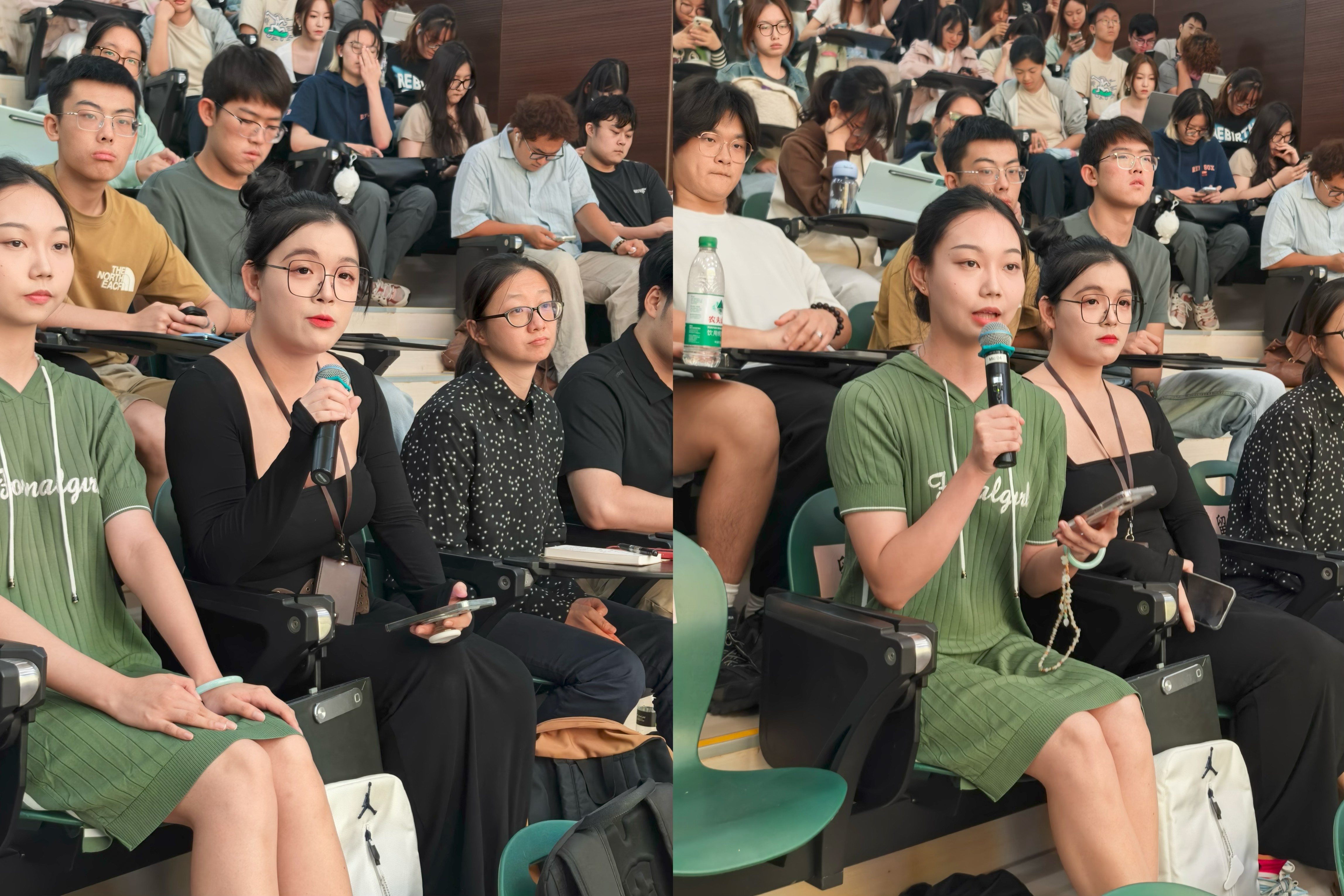
Q&A Session



